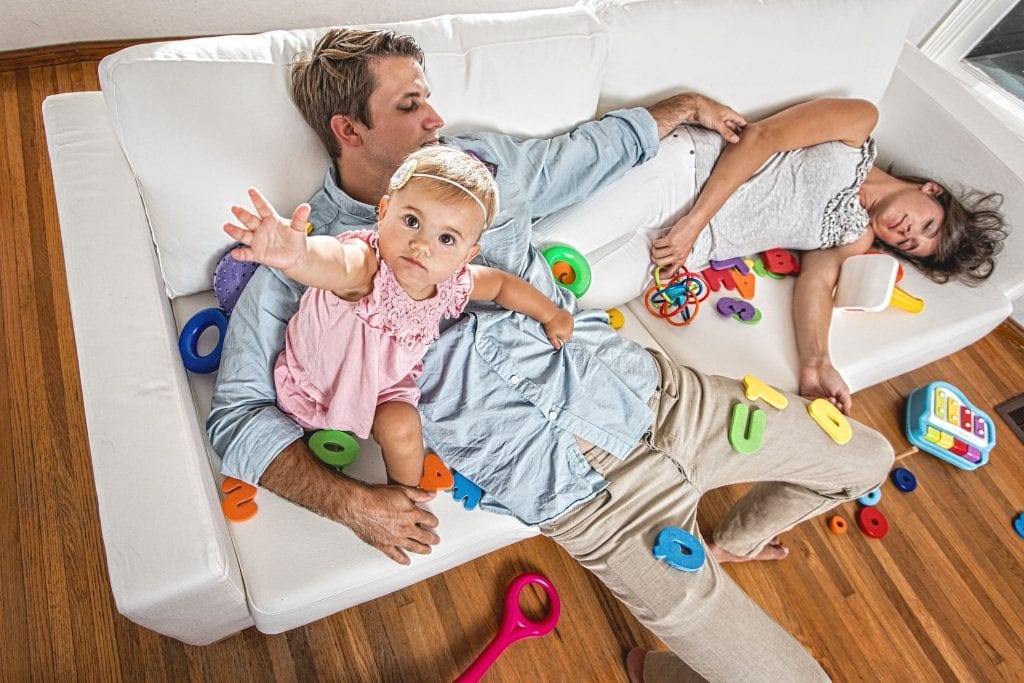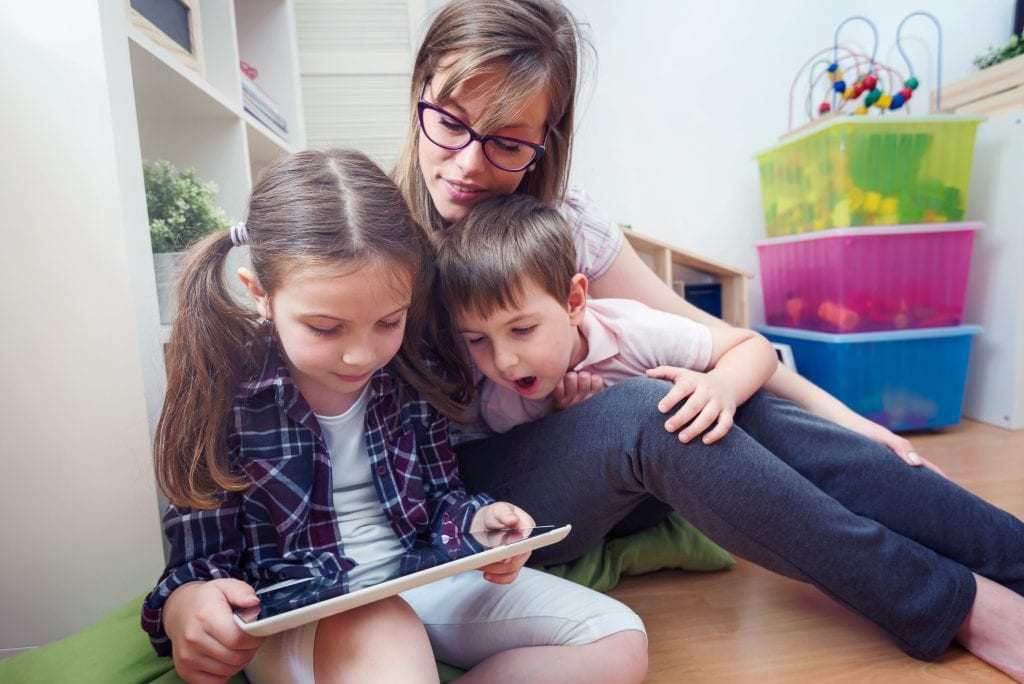
As most families spend most of their time at home to help curb the spread of COVID-19, the illness caused by the new coronavirus, people are starting to feel cooped up. We checked in with Dr. Pia Rebello Britto, global chief of early childhood development for UNICEF, for tips on dealing with “cabin fever” during this crisis.
What are some of the emotions and family dynamics that start to come to the fore as families are confined together at home for long stretches of time?
All of a sudden, children need company to play with and help with their schoolwork while parents are trying to work. Parents need to provide additional meals for their children as some would have received some meals at school. Many are balancing working from home while caring for their young ones. It’s an unprecedented situation and families are likely to feel stressed, claustrophobic and worried, which can impact their children as well. Young children may feel confused and scared, and sometimes unable to articulate these feelings, while teenagers may feel upset and isolated by this new – temporary – way of life.
In what ways do children react differently to this situation than adults might?
Children and adults alike might feel varying levels of fear and anxiety. The difference is, most often children need more care, love and support to process these feelings than adults do. Children – particularly younger children – might find it difficult to understand why their routine has changed, why their parents are home, why they cannot play with their friends or other family members. They may struggle to understand what they are seeing online or on TV – or hearing from other people – making them particularly vulnerable to feelings of anxiety, stress and sadness. Teenagers – who are missing out on some of the biggest moments of their young lives, as well as everyday moments like catching up with friends and participating in class – may respond with feelings of anxiety, isolation and disappointment.
Are there strategies we can use so that each family member can carve out some personal space and “alone time” (and is that even what kids want)?
Children need routine more so now than ever, so creating a plan – for play, for learning, for meals, for quiet time and for screen time – is important. Build the plan with your children, ask them what they want to do, and be ready to create a plan to respond to the changing situation. The needs of individual children and families may vary. Some families may want to have alone time for each member, others may want just “down time” hanging out with some or all members of the family. It is important to create and follow those routines that afford a sense of stability during these times.

Are there some types of activities families can do together that might make everyone feel less confined?
If families have access to technology, they can set up regular video calls with family and friends. There can also be set times in the day for various activities such as family play time and other times for solitude and quiet. In cases where people are living in small places this may be relevant. They can utilize some time to outline what every family member is grateful for, what their future aspirations are, what they’re learning from this experience. Families may want to cook, listen to music and tell stories together.
What can parents do to help keep things civil as family members start to get on one another’s nerves?
It’s natural for there to be disagreements at times, especially when emotions are running high. Create distractions for children. Have a games night or a film night, cook together and ask them to contribute to planning these activities. Utilize everyday moments as learning and play opportunities. These can be simple activities like singing a song while cooking or cleaning or counting items around the house or identifying colors. It’s also important for parents and caregivers to monitor their own behavior, as hard as this may be, because children will often take their emotional cues from their parents.
What self-care strategies should adults in the family be employing so they are better equipped to deal with this evolving situation?
If you’re feeling anxious or upset, take time for yourself and reach out to other family, friends and trusted people in your community. Make some time to do things that help you relax and recuperate. Try to have a routine for your family. This can help structure the days, allowing some time for yourself (quiet time/exercise/meditation) or other forms of self-care that you prefer. If possible, try to create SMS/chat groups that may be relevant so that trusted friends can continue to support each other virtually as well.
What strategies can parents employ to help address their children’s anxieties at this time?

- Ask open questions and listen. Start by inviting your child to talk about the issue. Find out how much they already know and follow their lead. Make sure you are in a safe environment and allow your child to talk freely. Drawing, stories and other activities may help to open a discussion. Most importantly, don’t minimize or avoid their concerns. Be sure to acknowledge their feelings and assure them that it’s natural to feel scared about these things. Demonstrate that you’re listening by giving them your full attention, and make sure they understand that they can talk to you whenever they like.
- Be honest. Explain the truth in a child-friendly and age-appropriate way. Children have a right to truthful information about what’s going on in the world, but adults also have a responsibility to keep them safe from distress. Use age-appropriate language, watch their reactions, and be sensitive to their level of anxiety.If you can’t answer their questions, don’t guess. Use it as an opportunity to explore the answers together. Websites of international organizations such as UNICEF and the World Health Organization are great sources of information.
- Show them how to protect themselves and their friends. One of the best ways to keep children safe from coronavirus and other diseases is to simply encourage regular handwashing and avoiding touching their face. It doesn’t need to be a scary conversation. Show them Sing along with The Wiggles or follow this dance to make learning fun.You can also show children how to cover a cough or a sneeze with their elbow, explain that it’s best not to get too close to people who have those symptoms, and ask them to tell you if they start to feel like they feel hot, don’t feel well, cough or are having difficulty breathing.
- Offer reassurance. When we’re seeing lots of troubling images on TV or online, it can sometimes feel like the crisis is all around us, and so it’s important to remain calm. Children may not distinguish between images on screen and their own personal reality, and they may believe they’re in imminent danger. You can help your children cope with the stress by making opportunities for them to play and relax, when possible. Keep regular routines and schedules as much as possible, especially before they go to sleep, or help create new ones in a new environment.If your child does feel unwell, explain that they have to stay at home/at the hospital because it is safer for them and their friends. Reassure them that you know it is hard, maybe scary or even boring at times, but that following the rules will help keep everyone safe.
- Look for the helpers. It’s important for children to know that people are helping each other with acts of kindness and generosity.Share stories of health workers, scientists and young people, among others, who are working to stop the outbreak and keep the community safe. It can be a big comfort to know that compassionate people are taking action.
- Close conversations with care. It’s important to know that we’re not leaving children in a state of distress. As your conversation wraps up, try to gauge their level of anxiety by watching their body language, considering whether they’re using their usual tone of voice and watching their breathing.Remind your children that they can have other difficult conversations with you at any time. Remind them that you care, you’re listening and that you’re available whenever they’re feeling worried.
What signs should parents watch for that might indicate their children aren’t coping well with the situation and need some support?
Look for signs of distress. You know your child better than anyone, ask yourself if their mood has changed for a prolonged period of time. Understand their level of anxiety by watching their body language. Listening to a change in their tone of voice or watching their breathing can be among the first signs of increased anxiety.
























